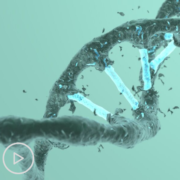What You Should Know About Acute Myeloid Leukemia (AML)
This podcast was originally published on City of Hope Radio by Guido Marcucci, MD, here.
Topic Info: Acute myeloid leukemia (AML) is characterized by rapidly-developing cancer in the myeloid line of blood cells, which is responsible for producing red blood cells, platelets and several types of white blood cells called granulocytes.
Because AML grows rapidly, it can quickly crowd out normal blood cells, leading to anemia, susceptibility to infections and uncontrolled bleeding.
Due to the aggressive nature of AML, this disease usually requires intensive treatment, which may include chemotherapy, radiation therapy, immunotherapy, and stem cell transplantation.
The following represent symptoms typical for AML:
- Fever with or without an infection
- Frequent bruising or bleeds that do not clot
- Leukemia cutis (multiple lesions with a firm or rubbery consistency that may be pink, red, red-brown or blue-violet in color)
- Night sweats
- Pain in the bones or joints
- Pain or feeling of fullness below the ribs
- Petechiae (flat, pinpoint spots under the skin caused by bleeding)
- Shortness of breath
- Weakness or feeling tired
Listen in as Guido Marcucci, MD discusses AML, its symptoms, diagnoses, and treatments.






